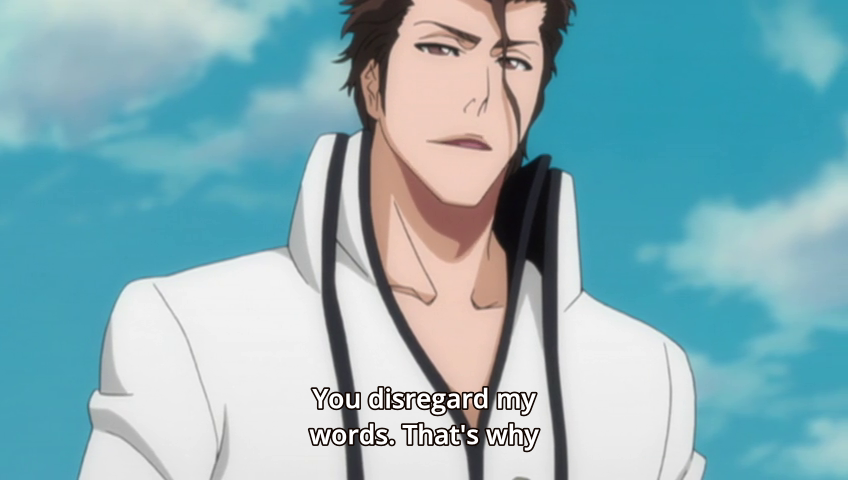Listen to the Words I Say. They Contain More Than You May Think.
There is something about the use of language that has always captivated me.
Supporting the words, there is the intonation and inflection, and behind them, the intent and implication.
Some are easier to pick up. Others only reveal themselves much later.
Just as certain groups and communities speak in code, both to identify themselves to one another and to exclude outsiders, I find it much easier to talk to certain people, who "get" what I'm saying and, just as importantly, what I'm not saying.
Some may call this "being on the same wavelength" or "having rapport", and there is certainly some of this involved.
More than that, there is a certain shared desire for pursuit of mastery of the language. And I believe that it is this pursuit that we identify in each other.
There is a certain scene (screenshots below) in the anime Bleach that I thought is worth exploring here.
In the scene, Aizen, the antagonist of the season, in true villainous monologue style, chastises his opponent, Yamamoto, head of the forces of "good" and the strongest supporting character of the season (because who can be more powerful than the protagonist, right?), for disregarding his warning - one that is veiled behind seemingly-inconsequential earlier explanation.
I identify very strongly with this particular scene because it reminded me of the countless times I worded carefully only for them to be missed entirely.
Barring his intensely self-absorbed, destructive, and somewhat sociopathic tendencies, I find the antagonist Aizen pitiable - for having an exceptional, brilliant mind yet not being able to find his equal for discourse and debate.
Would he have turned out differently had he found such a one?


